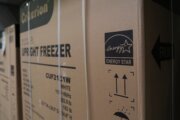RIO DE JANEIRO (AP) — A poll released Monday night shows Brazil’s President Dilma Rousseff gaining ground over her rival in a tight re-election race, though the contest remains in a technical tie.
The Datafolha polling group’s latest survey has Rousseff with 52 percent of voters’ support, compared to 48 percent for challenger, Aecio Neves. With the margin of error at 2 percentage points, that keeps the pair statistically tied.
But the poll was the first to show Rousseff numerically in front of Neves — meaning she’s trended upward while Neves has slipped. The previous poll by Datafolha released late last week had the race at 51-to-49 in Neves’ favor.
The Monday poll also captured a rising rejection rate for Neves: 40 percent of those surveyed said they would never vote for Neves, compared to a rejection rate of 34 percent earlier this month. Rousseff’s rejection rate stood at 39 percent in the most recent poll — down from 43 percent earlier this month.
This year’s campaign is considered by many analysts to be the most surprising and closely contested since Brazil’s return to democracy nearly 30 years ago.
It’s been marked by a plane crash that killed opposition contender Eduadro Campos in August, only to see his vice presidential candidate Marina Silva step into his spot and almost immediately gain a double-digit advantage over Rousseff in surveys.
But Silva’s campaign never found its feet, and her poll numbers glided down ahead of the Oct. 5 first-round vote, allowing Neves to surpass her to force Rousseff into the runoff round, required by Brazilian law when no single candidate wins an outright majority.
Rousseff of the ruling Workers’ Party is boosted by rock-solid support among Brazil’s poor. During her party’s nearly 12 years in the presidency, sweeping social programs have been started or expanded, helping lift millions of Brazilians out of poverty and into the middle class.
Neves represents Brazil’s main opposition group, the Social Democracy Party, which held the presidency from 1995-2003.
Datafolha says it interviewed 4,389 electors across Brazil on Monday.
Copyright 2014 The Associated Press. All rights reserved. This material may not be published, broadcast, rewritten or redistributed.







